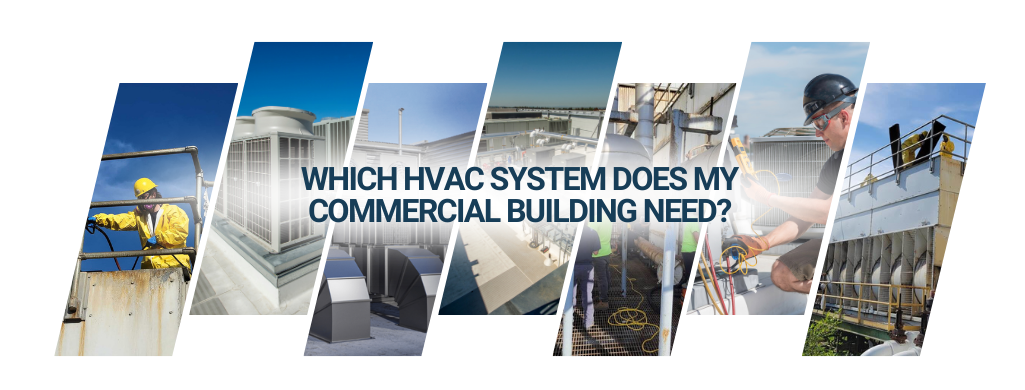Selecting the best commercial HVAC system for your business is an important choice that affects energy efficiency, functionality, building maintenance, and of course comfort. Choosing a system that best suits the unique demands and specifications of your building is more important than trying to identify one that is undoubtedly better. This article will examine several business HVAC systems and go over their benefits, drawbacks, and best uses.
Types Of Commercial HVAC Systems
Below is a selection of HVAC systems for larger buildings and some pros and cons of each. Your contractor will help you determine what your building requires to keep it heated and cooled correctly. PROAC will work with you to make sure the selected HVAC system lasts as long as possible and is well maintained.
1. Dual Duct HVAC System
Dual duct systems use two distinct air streams—one for warm air and another for cool air—to provide fine control over temperature and humidity. Large buildings with different heating and cooling requirements, such convention centers, museums, and hospitals, are good candidates for this system. Precise temperature control is one of the positives of the dual duct system. Due to the greater complexity of the system, it is likely you will have higher energy consumption and costs.
2. Rooftop HVAC Systems
In business settings, rooftop HVAC systems are common, particularly for one-story structures. They take up less room because they are mounted on the roof and self-contained. Rooftop systems are inexpensive and simple to maintain, although they may perform less well in multi-story buildings and are more vulnerable to weather-related damage and noise.
This is why they require much more ongoing management and maintenance. At PROAC we have specific solutions designed to protect the surfaces of rooftop HVAC units as well as
3. Variable Air Volume (VAV) Systems
VAV systems adjust airflow to various zones according to the required temperature. Because VAV systems are well-known for being energy-efficient, office buildings would be wise to install them. They may be more expensive initially, but they can save energy use during off-peak hours.
4. Constant Air Volume (CAV) Systems
Constant Air Volume (CAV) systems provide a consistent volume of air regardless of load. These systems are simpler and less expensive to install, making them suitable for smaller commercial spaces. However, they are less energy efficient than VAV systems and may result in less precise temperature control.
5. Split HVAC System
Split HVAC systems are a popular option for commercial buildings, especially those with distinct zones that require different levels of climate control. Refrigerant lines connect the indoor and outdoor condenser units in this system.
6. Package HVAC System
Package units integrate the components for both heating and cooling into a single system. These devices are inexpensive, simple to install, and appropriate for small to medium-sized business settings. They can be noisy, though, and they might not provide the same amount of energy efficiency as other systems.
7. Heat Pump HVAC Systems (Split or Package)
Heat pump systems are versatile and can provide both heating and cooling. Split systems are suitable for smaller buildings, while package systems are ideal for larger structures. Pros include energy efficiency and year-round temperature control, while cons may include the need for regular maintenance and potential refrigerant leakage.
8. Geothermal HVAC Systems
Geothermal systems generate heat and cold using the constant temperature of the Earth. Due to the difficulty of installation, they can have a greater upfront cost despite being extremely energy-efficient and environmentally good. Large structures with enough space for ground loops are perfect candidates for geothermal systems.
9. Fan Coil HVAC Units
Fan coil units are an easy and affordable way to keep each area at the right temperature and humidity. Frequently seen in hotels and apartment buildings, they provide separate temperature control for every room. They might need more upkeep and are less energy-efficient, though.
Find The Perfect HVAC System For Your Building
Making the right choice for your building’s commercial HVAC system is not a one-size-fits-all endeavor. Your unique needs, the scale of the building, your budget, and your worries about the environment all play a role. Every system has a unique mix of benefits and drawbacks, therefore in order to make an informed decision, it is critical to evaluate these aspects.

